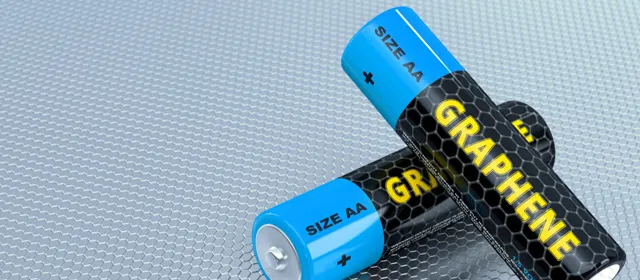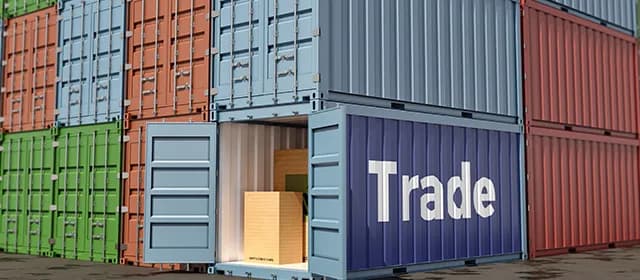Graphene batteries are emerging as a next-generation energy storage solution, offering faster charging, higher capacity, and longer lifespan compared to traditional lithium-ion batteries. Their lightweight and thermally conductive properties make them ideal for applications across electric vehicles, consumer electronics, and renewable energy systems.
The graphene battery market is growing rapidly due to rising demand for high-performance energy solutions and the global shift toward electric mobility. Industries are investing in graphene-enhanced batteries to improve efficiency, reduce charging time, and extend device longevity. According to Kings Research, the global graphene battery market will hit USD 1057.5 million by 2031.
Top 15 Companies Driving Innovation in the Graphene Battery Market
1. Nanotech Energy
Nanotech Energy specializes in graphene-based energy storage solutions, offering graphene-enhanced lithium-ion and supercapacitor batteries. The company’s Graphene Super Battery is designed to deliver higher energy density and faster charging times than conventional batteries. It develops non-flammable battery technology, enhancing safety while maintaining high performance. Headquartered in the United States, Nanotech Energy operates globally, with manufacturing and R&D facilities focused on expanding the graphene battery market.
In February 2024, NanoTech Energy announced that its upcoming production facility (Chico 2 in California) will begin delivering a lineup of three new 21700-format graphene-enhanced lithium-ion cells in 2025.
2. Huawei Technologies Co., Ltd.
Huawei Technologies Co., Ltd. is engaged in the development of graphene-based battery technologies aimed at improving energy density, charging speed, and thermal management. The company is exploring the integration of graphene materials into lithium-ion batteries used in smartphones, wearables, and electric mobility solutions. Its research focuses on enhancing battery safety and lifespan through advanced heat dissipation and energy efficiency.
Huawei has filed multiple patents related to graphene-assisted fast-charging systems and continues to invest in commercializing next-generation battery solutions. Headquartered in China, Huawei operates globally across telecommunications, consumer electronics, and energy technology sectors, contributing to advancements in the graphene battery market.
3. Skeleton Technologies
Skeleton Technologies is a key player in the graphene battery market, providing curved graphene-based ultracapacitors with higher power density and durability. The company’s SkelCap series enhances performance in automotive, aerospace, and industrial applications. It develops hybrid energy storage systems that combine the benefits of batteries and ultracapacitors, optimizing energy efficiency. Skeleton Technologies has a strong presence across Europe, with headquarters in Estonia and production facilities in Germany.
In June 2025, Skeleton Technologies launched GrapheneGPU, a graphene-based supercapacitor “power shelf” designed for data-centres to manage GPU-related peak energy loads. The system is based on their proprietary “Curved Graphene” material and is offered in configurations such as the 1U PCS 50 (60 kW peak at 48 V DC) and 4U PCS 400 (160 kW peak at 400 V DC).
4. OCSiAl
OCSiAl is one of the leading players in nanomaterials, offering TUBALL graphene nanotube additives that improve battery conductivity and longevity. The company’s solutions enhance the energy density and lifecycle of lithium-ion and solid-state batteries. It develops graphene nanotube dispersions, which improve the mechanical and electrical properties of battery electrodes. OCSiAl has a widespread presence, with offices and production sites across Europe, the United States, and Asia.
In October 2024, OCSiAl opened its first European production facility for its TUBALL graphene-nanotube products in Stara Pazova, Serbia. The facility has an initial nameplate annual capacity of 60 tonnes of graphene nanotubes, and can produce nanotube dispersions used to enhance up to 65 GWh of lithium-ion-battery capacity, equivalent to more than 1 million EVs with ~65 kWh battery packs.
5. NanoGraf Corporation
NanoGraf Corporation specializes in high-energy-density graphene-silicon anode technology for lithium-ion batteries. The company’s 18650 and 21700 battery cells deliver increased energy capacity by up to 50%, benefiting electric vehicles and consumer electronics. It develops proprietary graphene-coated silicon anodes, enhancing charging speed and battery lifespan. NanoGraf is based in the United States and collaborates with defense, automotive, and electronics manufacturers worldwide.
In June 2024, NanoGraf completed its first large-volume production run of its M38 18650 cells for U.S. military use. The cells deploy the company’s proprietary silicon-alloy/graphene anode material and are manufactured using a drop-in process compatible with standard battery lines, achieving up to 15 % longer runtime compared to existing solutions.
6. Global Graphene Group
Global Graphene Group is a major innovator in the graphene battery market, offering graphene-enhanced lithium-sulfur and solid-state batteries. The company’s G3 graphene technology improves thermal management and energy efficiency in battery systems. It develops graphene-based conductive additives, optimizing battery electrode performance. Global Graphene Group has operations in the United States and Asia, with research centers focused on next-generation energy storage solutions.
In September 2025, Graphene Manufacturing Group Ltd. (GMG) launched a global product catalogue of graphene-enhanced items, which include their G LUBRICANT and THERMAL-XR product lines and are now available for ordering by distributors worldwide in cartons and pallets.
7. Toray Industries, Inc.
Toray Industries manufactures advanced graphene-polymer composite materials used in high-performance battery applications. The company’s TORAYCA carbon fiber technology enhances the mechanical strength and conductivity of battery components. It develops lightweight and high-durability battery separators, improving efficiency and safety. Toray Industries has a global presence, with significant operations in Japan, North America, and Europe, catering to industries such as automotive and renewable energy.
8. LG Chem, Ltd.
LG Chem is one of the leading developers of battery technology, integrating graphene-based anode materials into its lithium-ion batteries to enhance performance and longevity. LG Chem develops solid-state and high-energy-density batteries, positioning itself at the forefront of next-generation energy storage. With a strong global presence, LG Chem operates in South Korea, North America, Europe, and China, serving industries like EVs, consumer electronics, and renewable energy.
9. PPG Industries, Inc.
PPG Industries focuses on advanced materials, providing graphene coatings for battery electrodes to improve conductivity and thermal stability. Its PPG conductive additives enhance the lifespan and efficiency of lithium-ion and solid-state batteries. The company develops protective graphene-based coatings, reducing degradation in battery cells over extended use. With operations spanning over 70 countries, PPG Industries is a key contributor to material innovations in the graphene battery market.
10. Sekisui Chemical Co., Ltd.
Sekisui Chemical is developing graphene-infused battery separators, enhancing safety and performance in energy storage solutions. Its high-heat-resistant films improve the stability of lithium-ion and next-generation solid-state batteries. The company is also working on graphene-polymer composites, enabling better mechanical strength in battery structures. Sekisui Chemical has a strong presence in Japan, the United States, and Europe, serving industries such as automotive, aerospace, and consumer electronics.
11. Fraunhofer-Gesellschaft
Fraunhofer-Gesellschaft is a leading research institution pioneering graphene-based energy storage technologies. Its innovations include ultra-thin graphene anodes, improving battery energy density, and charge cycles. The institute develops scalable graphene production techniques, advancing commercial adoption of graphene-enhanced batteries. Fraunhofer operates across Germany, with collaborations in Europe, the U.S., and Asia, significantly impacting the graphene battery market through research-driven advancements.
12. Samsung
Samsung integrates graphene-enhanced battery technology in its consumer electronics and electric vehicle battery solutions. The company’s Samsung SDI battery division is exploring graphene ball technology, promising a 45% increase in capacity and fivefold faster charging speeds than traditional lithium-ion batteries. Samsung develops solid-state and flexible battery solutions, leveraging graphene to improve efficiency and lifespan. With a vast global presence, Samsung leads innovations across Asia, North America, and Europe.
13. Graphene Manufacturing Group (GMG)
Graphene Manufacturing Group specializes in graphene aluminum-ion batteries, providing a faster-charging and longer-lasting alternative to lithium-ion technology. The company’s GMG Graphene Battery boasts significant improvements in energy density and thermal stability. GMG develops proprietary graphene production techniques, ensuring scalable manufacturing for commercial applications. Based in Australia, GMG collaborates with global partners in the graphene battery market to commercialize its cutting-edge solutions.
14. BYD
BYD is a major player in the EV and energy storage industry, utilizing graphene-enhanced materials to boost battery efficiency. The company’s Blade Battery integrates graphene elements, reducing overheating risks while increasing lifespan. BYD develops high-performance battery packs for electric mobility and stationary energy storage. With headquarters in China and operations in over 50 countries, BYD continues to expand its footprint in the evolving graphene battery market.
15. Solidion Technology
Solidion Technology focuses on next-generation solid-state graphene batteries, aiming to eliminate liquid electrolytes and enhance energy density. Its graphene-based solid-state cells offer superior charge retention and durability, catering to the EV and aerospace sectors. The company develops high-performance electrode materials, advancing commercialization in sustainable energy storage. Solidion operates in multiple research hubs across North America and Europe, driving innovation in the industry.
Conclusion:
Graphene batteries are set to disrupt the energy storage landscape with their unmatched speed, efficiency, and durability. As electric vehicles, portable electronics, and renewable energy systems demand higher performance, these next-gen batteries are becoming essential. The top 15 companies listed above are leading advancements in materials science, thermal management, and scalable manufacturing. Their innovations are shortening charging times, increasing energy density, and enabling safer, more sustainable power solutions. As the global shift toward electrification continues, the graphene battery market will play a critical role in powering the future.




